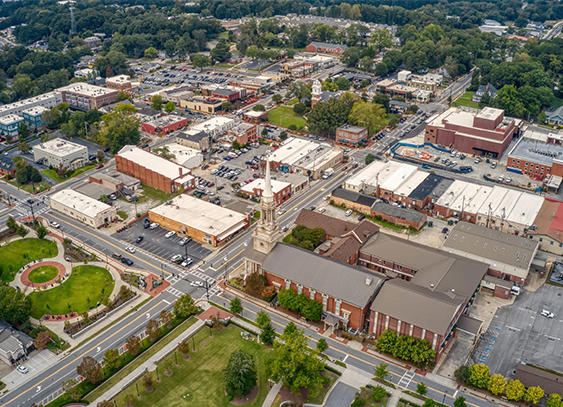
If someone damages your property through misconduct, you might have a claim for property damage compensation against them. Property damage claims arise in many different contexts, including personal injury accidents. You might even qualify for compensation in a product liability claim without even having to prove that the product manufacturer was at fault.
The Georgia Statute of Limitations Deadline for Property Damage Claims
In Georgia, you usually have until four years after the date of the property damage to file a compensation claim. This deadline gives you more time than you have to file a personal injury claim, which is typically two years. Check with your lawyer to make sure because if you miss the deadline, your claim will die immediately.
Examples of the Types of Property Involved in Property Damage Claims
The following is a partial listing of types of property that are the frequent target of disputes or litigation:
- Vehicles such as cars, trucks, motorcycles, bicycles, or boats;
- Business equipment;
- Electronics (a smartphone, for example, or a laptop computer);
- Factory equipment;
- Fixtures, such as an HVAC system;
- Landscaping;
- Personal property such as jewelry;
- Real property, such as buildings that can suffer structural damage; and
- Works of art.
Intellectual property is a type of property all of its own.
Valuation Methods for Property Damage
You cannot file a claim until you have a reasonable estimate of how much it is worth.
The following is a listing of some of the methods of determining the magnitude of property that is subject to a compensation claim:
- Actual Cash Value (ACV): The ACV method considers the item’s current market value after depreciating its original value based on its age.
- Replacement Cost: How much would it cost to replace the item with a new item of similar kind and quality? This is perhaps the most popular property valuation method, especially for car accidents. Nevertheless, since it doesn’t factor in depreciation, it can overestimate the value of older property.
- Cost of repairs: This is perhaps the most common method of determining the cost of damage to a car, at least if the car is not totaled by the accident. People also use this method to evaluate damage to a home.
- Market Value: How much would a rational buyer pay for the property immediately before the damage? This method is popular for real estate and unique items.
- Functional Replacement Cost: If the damaged item is obsolete or unreasonably expensive to replace, how much would it cost to replace the item with a different item that performs the same function?
Each of these methods has its strengths and weaknesses, and the choice of valuation method can greatly affect the valuation. Many disputes about property value are really disputes about the choice of the method of property valuation.
Unique Aspects of Car Accident Property Damage Claims
Car accident claims are probably the most common type of property damage claim for several reasons:
- Late-model cars are particularly valuable property;
- The value of an automobile rapidly depreciates;
- Traffic laws heavily regulate driving, making it relatively easy to determine liability;
- Georgia requires its drivers to purchase liability insurance coverage; and
- There are many different types of auto insurance policies available.
Auto insurance policies tend to expedite the compensation process to ensure that people can promptly repair or replace their damaged vehicles.
Insurance Coverage: A Closer Look
Insurance companies pay most property damage claims and almost all high-value property damage claims. Sometimes, these cases go to trial, but most of them settle outside of court. Navigating the insurance landscape is crucial in effectively managing property damage claims.
Common forms of auto Insurance include:
- Bodily injury and property damage liability insurance, which protects against damages that the policyholder causes to others
- Collision and comprehensive insurance, which covers damage to your vehicle from collisions and other dangers such as theft or weather damage
- Uninsured/underinsured motorist coverage which protects you against damage caused by hit-and-run, uninsured, or inadequately insured drivers
Other popular forms of insurance include:
- Homeowners’ insurance, which covers the home itself, other structures such as detached garages and sheds, personal property inside the home, and the homeowners’ property damage liability
- Rental Insurance, which covers the renter’s personal property inside leased premises in case of theft, fire, and other dangers
- Business Insurance, which protects commercial property and assets against damage and operational disruption
If insurance coverage limits aren’t enough to pay a claim, the defendant might end up having to pay a property damage claim out of their pocket. Although most individuals cannot afford to do this, most businesses can.
Special Case: Intellectual Property Infringement
Intellectual property–patents, copyrights, trademarks, and trade secrets– differs from other types of property due to its abstract nature. A computer, for example, is tangible enough to drop on your foot. But what about a computer algorithm? How do you drop a unique pattern of ones and zeros on your foot? Because of its unique nature, the methods of evaluating intellectual property rights claims differ radically from the methods of evaluating other types of property rights.
Justice for Your Property Damage Claim: A Lawrenceville Lawyer Can Make a Difference
If your property damage claim is minor—a scratch on your car’s fender, for example–you might not even need a lawyer. If the damage to your property is extensive, however, or if it arose together with a personal injury claim, you might need a lawyer after all. Schedule a no-obligation consultation with a Lawrenceville personal injury lawyer at your earliest convenience. Call us at (678) 446-3655.
